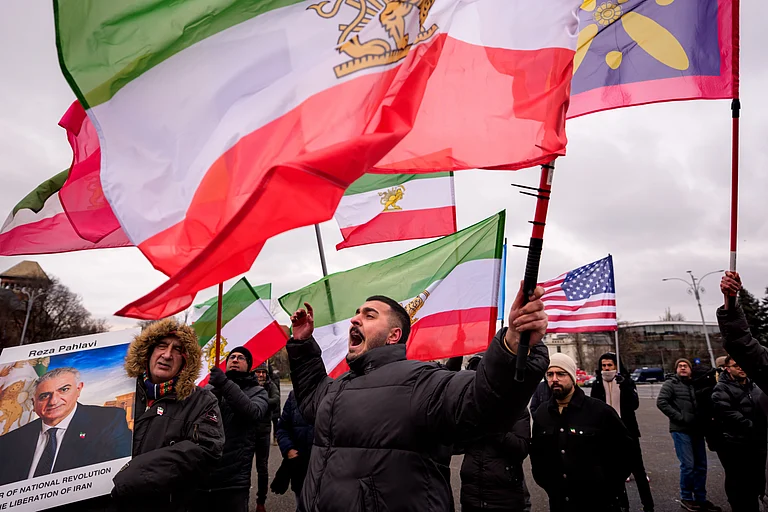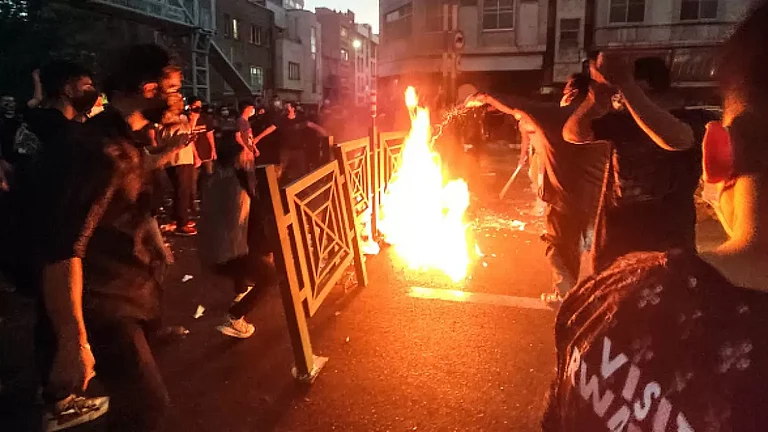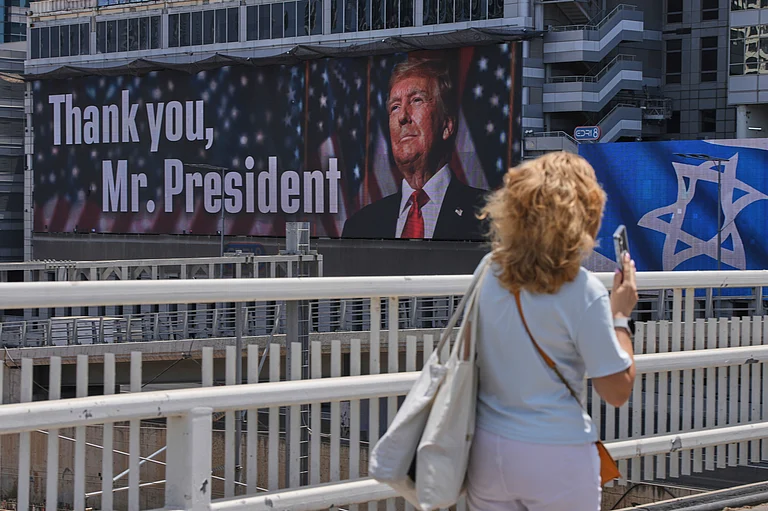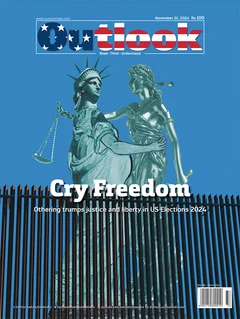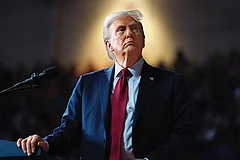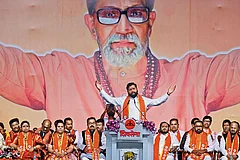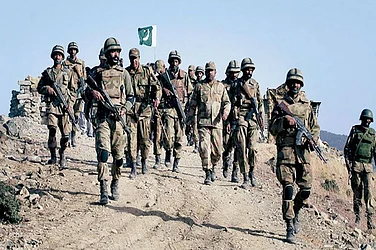The political map of the United States is awash in red, with just a tinge of blue near the two coasts. In the end, it was not a close race. Donald Trump has stormed through stronger than in 2016, with more support from women, African Americans, Asians, Hispanics and even Arabs and Muslims. He has won the Electoral College votes, the popular mandate, and ensured a majority in the Senate. This will make him unstoppable to appoint or sack whom he wants and run the country as he likes for the next four years. Axios, the prominent American website, has dubbed Trump as the most powerful Republican of the modern era “vanquishing the Bushes, the Clintons, the Bidens, the Obamas… and backed by a party that is wholly remade in his image”.
While America comes to grips with Trump’s stunning victory, the world is bracing for a second Trump presidency. What happens to the ongoing wars—Israel’s in Gaza and Lebanon, and Russia’s war in Ukraine? Trump will again walk out of the Paris Climate Agreement and unfreeze bans on drilling for oil, including in the Arctic, to help companies make money by allowing fracking. In short, it will be a body blow in the fight against global warming. America under Trump will be more protectionist and inward-looking with trade wars with China and other countries.
But no one is sure what to expect from an unpredictable Trump. It is, however, a well-known fact that the business tycoon-turned politician is not a warmonger. During campaign speeches, he advised Israel’s Prime Minister Benjamin Netanyahu to do what he had to do quickly and wrap up the war. Netanyahu was delighted by Trump’s victory calling it “history’s greatest comeback”. He also described it as a “fresh start for America” and a “powerful recommitment to the great alliance between Israel and America”. During his first term in office, Trump had pleased Israel by shifting the US embassy from Tel Aviv to Jerusalem, lending credibility to Israel’s claim to the ancient city. The Abraham Accords, signed between Israel, the UAE, Bahrain, and later by Morocco and Sudan, added legitimacy to the Jewish State and its acceptance by its Muslim neighbours. Jared Kushner, Trump’s Jewish American son-in-law, did the heavy lifting for the agreements. It was only a matter of time before Saudi Arabia, the most important Sunni power in the region, would follow suit. However, the Hamas attack of October 7 put a stop to the process. Without a resolution of the Palestine issue and a stop to the relentless killings in Gaza, and now in Lebanon, the Saudis would find it difficult to normalise formal ties with Israel. Trump, who is close to the Saudis and other Gulf rulers, would push for a quick end to the war as he regards the oil-rich countries as an opportunity for American business. The Saudis have already invested $2 billion in Kushner’s firm, Affinity Partners.
During the election campaign, Trump had often boasted that during his first term in office, there were no wars. While under Joe Biden’s weak presidency, where he could not assert American power effectively, there were wars in both West Asia and in Europe.

“In the Middle East, Trump’s policy is expected to centre on Iran and Israel. Israel’s security will remain a priority, but if he pursues an end to regional conflicts, Trump may have to wait for Israel to achieve certain objectives before exploring negotiations, possibly involving key regional allies like Saudi Arabia,” says Ali Mammadov, analyst and researcher in political science at the George Mason University.
Trump is bitterly opposed to Iran. He walked out of the nuclear deal with Iran, and had encouraged Netanyahu to “hit” that country’s nuclear facility during the recent stand-off between the two countries.
Netanyahu, knowing Trump’s antipathy to Iran, would, perhaps, take a much more aggressive stand on Tehran. However, a strike on Iranian nuclear facility is certain to result in an all-out war between Iran and Israel that could engulf the entire region. Whether Trump would want to escalate the already volatile situation in West Asia is not clear.
“While Israel may be inclined to push that conflict further in an expectation that the US will come to their defense, Trump doesn’t like war. Trump will be in his last presidency and looking to his legacy. In his campaign, he made much of the fact that the US was not in any conflicts while he was in charge, and he will likely want to keep that legacy,” says Joanna Spear, research professor at the George Washington University.
Iran knows the score, and believes it is immaterial who is in the White House. Iran’s foreign ministry spokesman, Esmail Baghaei, shrugged off the results saying it is for the American people to elect whoever they choose. “Our people have very bitter experiences from past consecutive American administrations,” he said, adding, “What matters for us is the US’ deeds.”
Russia’s Vladimir Putin had been rooting for Trump, knowing he is unhappy with US taxpayers’ money going into funding the Ukraine war. Trump had often boasted that he would stop the Ukraine war in 24-hours if he became president. Ukraine President Volodymyr Zelenskyy as well as North Atlantic Treaty Organization (NATO) allies are wary of Trump. Europe has long gotten used to the US being its main security provider. Trump was difficult to handle in his first term, what he does in his second, is of growing concern. Though Trump has ensured that NATO nations spend more on Europe’s security, his unpredictability puts Europe on the edge.
Trump’s admiration for strong leaders, especially Putin, is well known. Journalist Bob Woodward writes in his latest book that the US president-elect and Putin spoke seven times since Trump left office. In his first public remarks following Trump’s victory, Putin flattered him by praising his bravery in facing an assassination attempt “like a real man” and adding that he was ready to discuss Ukraine with Trump. Whether he can get Ukraine and Russia to agree to end the war is another matter. Though the US media has constantly attacked Trump for his “soft” approach to Putin, it is also a fact that during his first term in office (2017-2021), Trump was tough on Russia.
Prime Minister Narendra Modi and Trump have a good personal rapport, and New Delhi is looking forward to welcoming Trump for a Quad Summit early next year. Trump was bedazzled by the reception he got when he visited Ahmedabad in February 2020, where a mammoth crowd welcomed him and his family. The ‘Namaste India’ event was a response to the ‘Howdy Modi’ event in Texas, organised by Indian-Americans in 2019 when the PM was in the US. It was during Trump’s first term that the US government authorised the sale of dual-use technology to India, something New Delhi had been previously denied. India-US ties are now all-encompassing, having been nurtured by both the Bharatiya Janata Party (BJP) and the Congress as well as the Democrats and the Republicans.
MORE FROM THIS ISSUE
Trump’s election promise of levying a 10 to 20 per cent tax on all imports will hit India’s exports. He will insist on New Delhi giving the US more market access in the name of “fair trade” that could hit India’s domestic industry. Immigration will become a major issue. While Trump maintains that he is against illegal migrants and not those who enter the country lawfully, visa restrictions could come into play, making it tougher for India’s IT professionals. But the overall relations will not be affected, as Trump takes on China with his 60 per cent tariff on Chinese imports. So long as the US sees China as a future threat to its number one position in the world, India-US ties will remain stable. “India-US relations did well under the Trump presidency. A few issues were sorted out to the satisfaction of the two sides. This is bound to happen in any relationship, especially in one that extends from the sea to outer space! We will continue to build on our Comprehensive Global Strategic Partnership with the United States under President Trump,” says Randhir Jaiswal, spokesperson of the Ministry of External Affairs, who served in Washington before coming to Delhi.
(This appeared in the print as 'Will Trump Fuel Or Finish Wars?')








